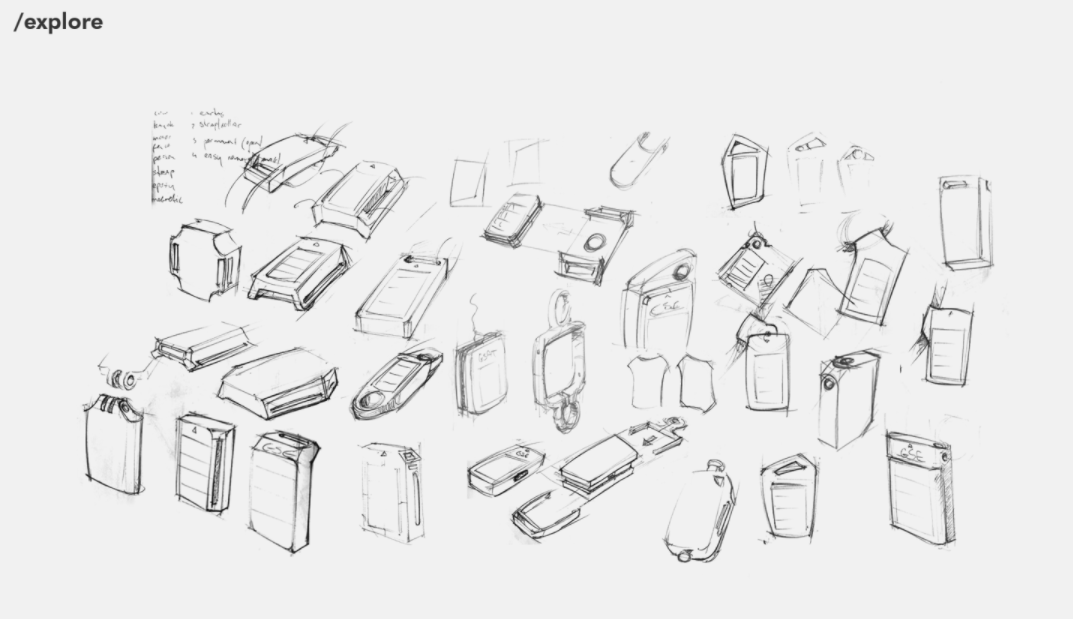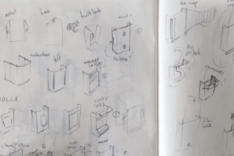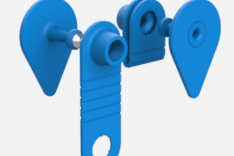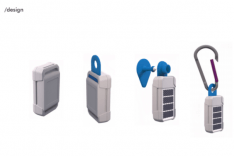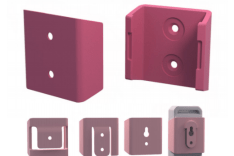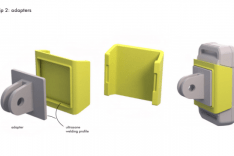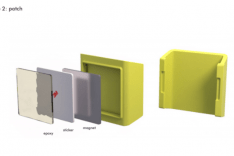Series Overview
This industrial design series is a great opportunity for us to show off the design processes we go through at GSE when we're creating new hardware products. This is part 4 of a six part series that points the spotlight at our new low-cost tracking terminal, the GSatSolar. If you have not read the other articles in this series, I suggest starting with the introduction piece by clicking here, because it has important information about our processes that will be referenced throughout this article.
Part 4: Mounting
As mentioned in previous installments of this series, modular mounting options for the GSatSolar are among its key features, and one of the device's best differentiators. Modular mounting options make the device viable in dozens of different industries, markets, and verticals, and also provide animal tracking clients with a cruelty-free option if they don't wish to clamp an ear tag. Each of our design decisions affected the device differently, and were informed by the needs of the potential clients they served.
The Design Process
When we made the decision to give the GSatSolar multiple modular mounting options, we knew that there would be a follow-up design process for each of the primary mount options. The modularity of these mounts means the design process is actually expansive rather than narrowing. While we typically start with a number of options and narrow down until we have a final design, for this set of accessories, we actually had to work from a narrow design toward a more flexible and open concept.
Market Considerations
When we were working on concept phase GSatSolar product development, we internally crowd-sourced over 200 different use cases for the GSatSolar unit outside of standard cattle tracking. In doing this, we were able to consolidate those use cases into a much smaller number of classifications, and from there, we were able to consider design options within the categories themselves. This category separation serves to define the modular mounting options, and helps us establish design parameters for each one. Those categories are:
- Cattle
- Non-cattle Large Animal
- Non-cattle Small Animal
- Land recreational
- Aquatic recreational
- Equipment - stationary
- Equipment - mobile
Parameters
Each category comes with a different set of parameters, but the most important is the size and weight in the Cattle ear tag category, as the added weight of the mount must not push the total weight of the unit above a threshold of 30 grams. Other parameters include durability and reliability, as many of these GSatSolar units will be deployed for years without human contact, and the mounts must be able to sustain that product lifespan. Finally, flexibility and modularity within the mounting mechanisms themselves will be almost as valuable as the modularity of having multiple mounts to choose from. Cascading modularity by making modular accessories is just another way to expand the potential use cases of the GSatSolar exponentially.
Ear Tag Options
For those of you who haven't read prior installments of this series, I recommend doing so, but particularly part 3, where we went over the ways in which we designed GSatSolar to guarantee proper use of the product. As part of this, we decided to make our strap mount bars asymmetric to one another, with the top bar having a wider opening (20mm) than the bottom bar (18mm). This decision influenced the design of the ear tag mount, which is a 20mm silicon strap that runs through the bar, loops back up, and creates a hole to nest the ear spike. The ear tag has been designed to work with existing tools and tags, meaning no new processes or technology to learn or acquire for tagging cattle.
Ear Tag Flexibility
In addition to its standard ear spike design, the ear tag strap is actually a functional strap when used in combination with any mounting hook, like a carabiner or a standard animal collar. This provides a great deal of flexibility with the standard ear mount, and gives potential users an array of dangle-based options using the standard strap mount. This application is great for people that have small adventure craft that require a sturdy mount that isn't susceptible to being dislodged by abrupt contact, being tossed around, or normal vibrations.
Fixed Mount Clip
The fixed mount clip is designed mostly for the equipment categories, and should be used for assets that are not subject to harsh contact. It provides a mounting mechanism that guarantees the device doesn't move from where it's mounted, and provides an option where strapping and dangling options can't be employed, like on the hood of heavy vehicles. There are a number of options within the fixed clip mount design, and GSE will be going to market with them as demand arises. To launch, we expect the standard double screw model to be a solid option for most fixed clip mount market needs.
Modular Plate Clip
The modular plate clip expands on our modularity theme with the GSatSolar by making a universal clip housing with interchangable back plates to accomodate after market and third party mounting designs. Because we can never foresee the full range of usage demand in spite of our best efforts, we know that we can at least deliver an adaptable and flexible clip mount that can accommodate unforeseen mounting needs. The flat square leaves room for magnetic plates, adhesive strips, and an array of other adapters like the one shown to the left.
Clip Options
Between the fixed mount clip and the modular plate clip, only a small portion of the total number of mounting options for the GSatSolar have been designed. Future clips will likely take advantage of the asymmetric strap bars, clipping into those for added stability and to guarantee the product is mounted facing the right direction. Whatever the future holds for mounting options, we are certain that the GSatSolar's mounting modularity will be able to accommodate it.
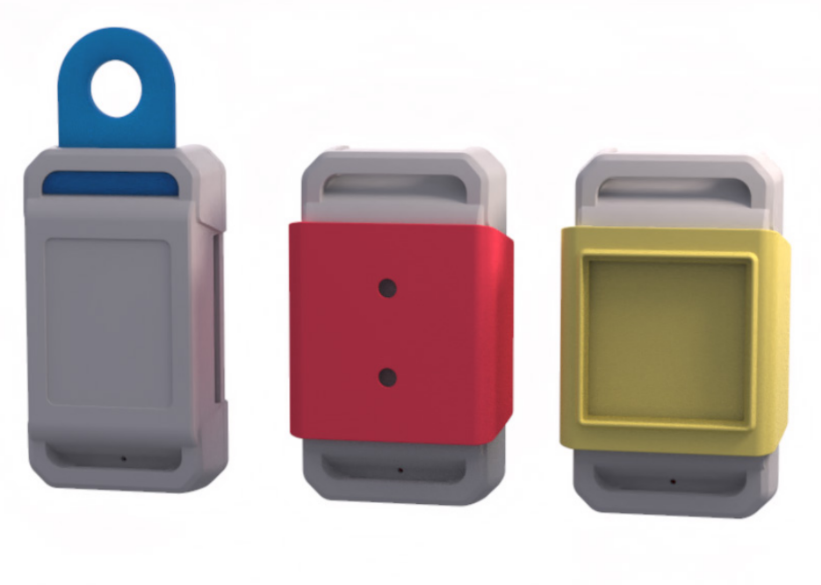
The Outcome
With three different designs available for GSatSolar mounting at launch, we are doing our best to be certain that GSatSolar will be ready to deploy for anyone who wants to track their assets with it. This wide approach to design of the mounting mechanisms give the GSatSolar the flexibility to serve the markets in which it's best suited to operate as early as day one without the need to redesign the entire form factor. This modularity is the key to GSatSolar's success outside of the cattle market, and the attention paid to making sure the product aligns with existing mounting adapters, clips, and tools already on the market is equally important to ensuring widespread adoption and intuitive user experiences straight out of the box.
More Information
As mentioned previously, there will be two more articles in this series that will bring you through our entire design process for the GSatSolar, with a focus on the major inflection points in the product's history. We encourage you to keep an eye on the blog and our social media as we bring you those articles. For more information about the GSatSolar, we invite you to read more about specs, features, and applications on the product's official website, and sign up for the newsletter as well.


